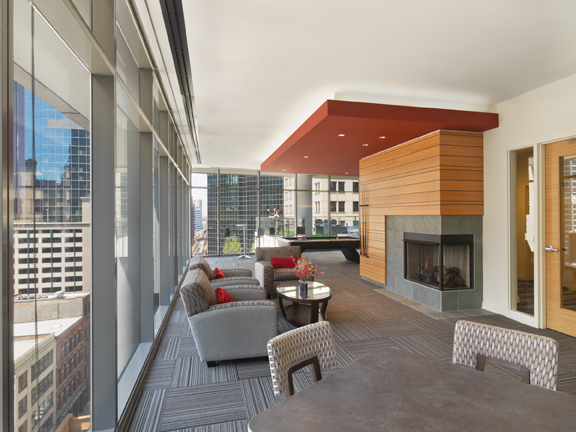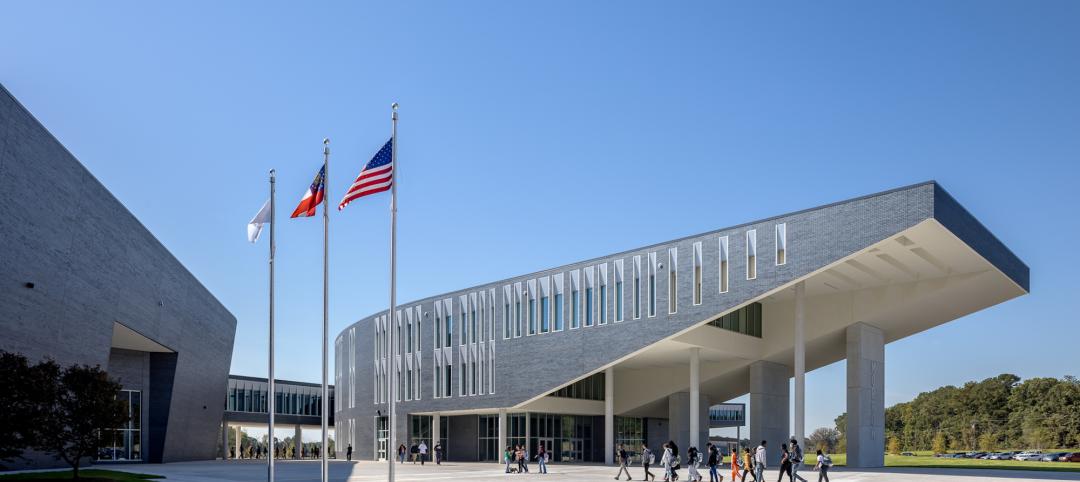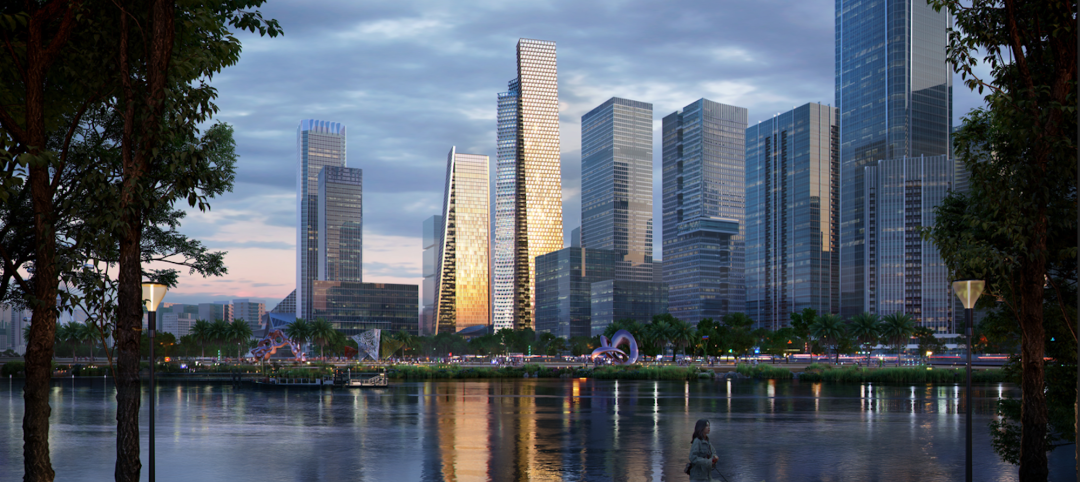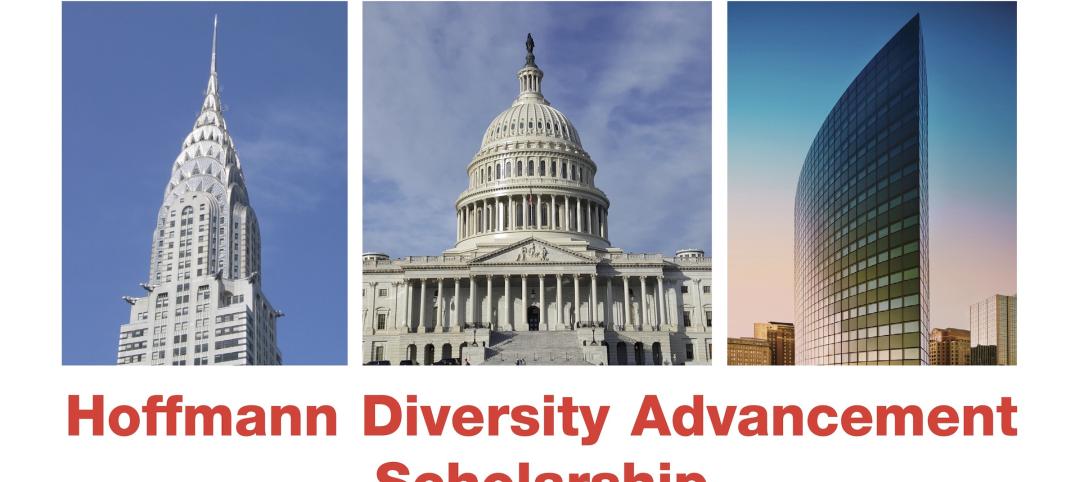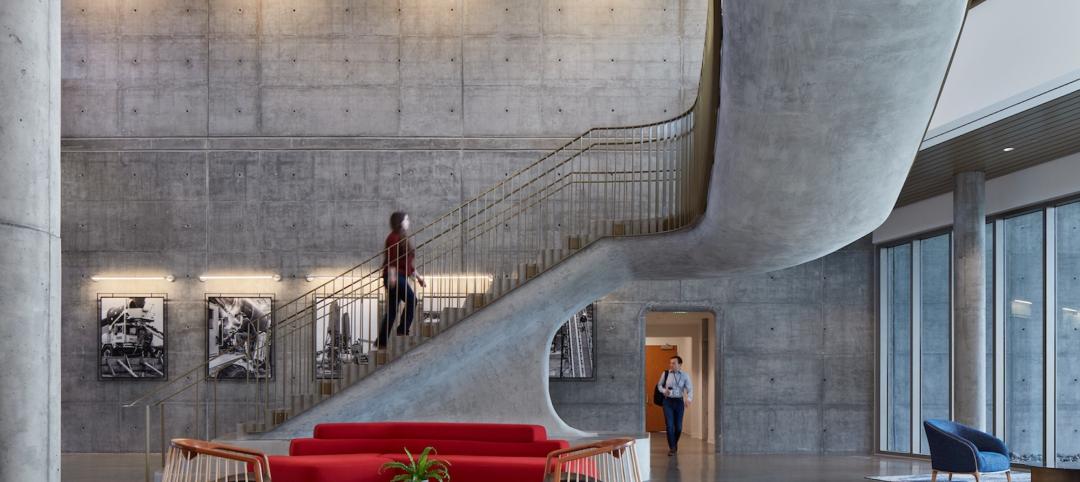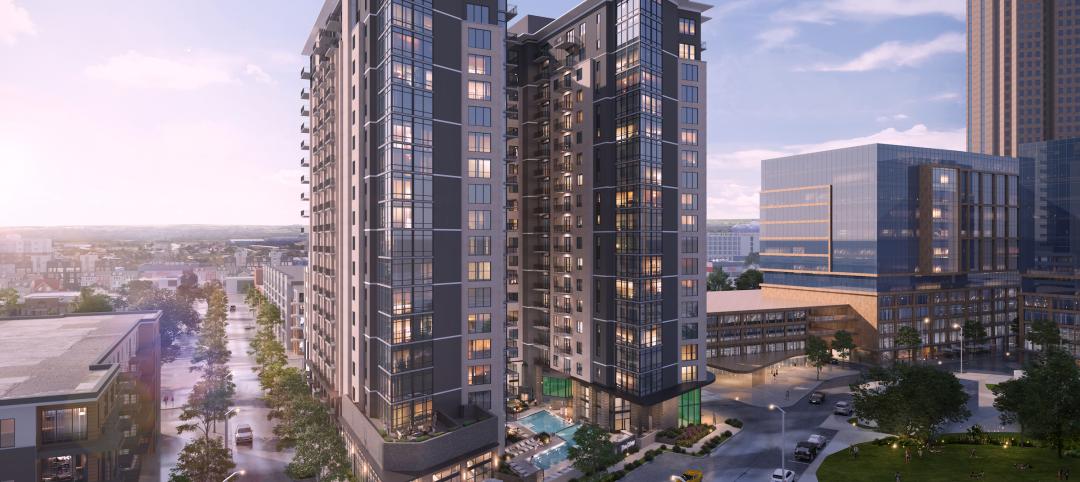Except for a few pockets of ultra-luxury condo action—New York, San Francisco, and parts of Florida, Hawaii, and metro Washington, D.C.—today’s multifamily story is all about rentals. “The apartment sector has been a darling for investors over the past two years,” notes the Urban Land Institute in its recent Real Estate Consensus Forecast. Vacancy rates are at an enticing 5.0%, and rental rates should be up 5.0% this year, although ULI does forecast some slippage next year, to 4.0%.
“Investors continue to view apartments as a preferred asset class in today’s environment,” says Dale Connor, Lend Lease’s Managing Director, Project Management & Construction, Americas. He sees developers playing catch-up to meet the growing demand for apartments, especially in the top five rental markets: New York City, Washington, D.C., Boston, Chicago, and Los Angeles.
SCROLL DOWN FOR GIANTS 300 MULTIFAMILY FIRM RANKINGS
Savvy market-rate developers are looking for locations around universities, innovation incubators, and teaching hospitals, says Ray Kimsey, AIA, LEED AP, President of Atlanta-based Niles Bolton Associates. Land that was once set aside for retail or office development is being looked at for multifamily, especially if served by urban transit.
“If you look at the hottest neighborhoods around Washington, D.C., Pittsburgh, or Baltimore, they all have an influx of Gen-Y people graduating and wanting to stay in that environment,” he says. Kimsey says there’s even a movement toward walk-up, garden-style apartments in some suburbs and second- and third-tier cities.
The use of urban infill sites is adding to the popularity of podium-style multifamily construction, says Mathew Dougherty, PE, Vice President with McShane Construction, Rosemont, Ill. “The podium ‘stacks’ uses vertically within the existing floor plate, thereby allowing a mixed format of ground-floor retail, parking floors, and residential floor plates,” he says.
According to John Lahey, AIA, Managing Principal at Chicago-based Solomon Cordwell Buenz Associates, the rental market is being shaped by two factors: service and community.
“Service” refers to the heightened demand for amenities: party rooms, surround-sound movie theaters, fully equipped fitness centers, mega-size video screens in common areas, computer golf games that let you play any course in the world, I-GO car rentals—even “restaurant days,” where a local restaurant comes in and sells takeout dinners one night a week.
There are even amenities for canine occupants. “People love their dogs,” says Lahey, so dog walks, dog parks, dog washing bays, and dog walking and grooming services are becoming de rigueur in many large (>400 units) complexes. “People want their lives to be easier,” he says. “They want to be taken care of.”
Tenants are demanding more green amenities, says Kimsey. “Expectations about energy conservation and sustainable features are now viewed as a basic right by many tenants,” he says. “If they lived in a LEED-certified residence hall in college they want a LEED apartment”—but not if it costs more than market rate.
“Community” refers to the renter’s need for connection, says Lahey. In past decades, apartment dwellers put a premium on privacy. Less so today. “A lot of people who move back into the city, they’re not confirmed urban dwellers, and they want to meet people,” he says. “The Starbucks in your building becomes the meeting place to get integrated into the larger community.” McShane’s Dougherty says wifi connectivity has become a given in new and renovated rental projects.
“The design must be hot,” says Kimsey. The units themselves may be “smaller, tighter,” but that means they must be more elegant and efficient, with open layouts and near-condo-like finishes. McShane’s Dougherty says granite countertops, stainless steel appliances, upgraded bathrooms, and high-quality flooring are expected, even in suburban garden apartments. Developers are increasingly concerned about sound attenuation, he says, so insulation choices, assembly details, and materials selection are crucial.
Looking ahead, SCB’s Lahey says that, unlike the condo market, apartment development needs to be left to the pros—firms like AMLI, Avalon Bay, Equity Residential, Forest City, The Habitat Company. “They have the track record, and they really do know what they’re doing,” he says.
“The money is out there,” says Kimsey, but it’s split between smaller projects being funded by S&Ls and smaller banks, and big projects attracting institutional and private-equity investors. Holding back the pent-up demand: anemic job creation, which limits new household formation.
Even with low mortgage rates, many potential buyers have become skittish about purchasing a home, says Lend Lease’s Connor. SCB’s Lahey cites mobility as another factor in rental’s favor, especially with the younger generation.
“People will like living closer in, and units will get bigger, something decent in size, and they’ll be willing to pay for it,” he says. “They’ll see a home as a place in which to live, not necessarily as an investment.” +
TOP 25 MULTIFAMILY SECTOR ARCHITECTURE FIRMS
| Rank | Company | 2011 Multifamily Sector Revenue ($) |
| 1 | IBI Group | 38,489,114 |
| 2 | Niles Bolton Associates | 13,772,650 |
| 3 | Solomon Cordwell Buenz | 12,000,000 |
| 4 | RTKL Associates | 11,397,556 |
| 5 | WDG Architecture | 9,817,297 |
| 6 | Perkins Eastman | 9,100,000 |
| 7 | HOK | 8,715,422 |
| 8 | Perkins+Will | 7,193,120 |
| 9 | ZGF Architects | 6,225,112 |
| 10 | Cooper Carry | 5,708,482 |
| 11 | Kohn Pedersen Fox Associates | 5,280,000 |
| 12 | Ziegler Cooper Architects | 4,853,598 |
| 13 | Harley Ellis Devereaux | 4,800,000 |
| 14 | PGAL | 4,607,900 |
| 15 | OZ Architecture | 4,104,475 |
| 16 | GBBN Architects | 3,700,000 |
| 17 | Smallwood, Reynolds, Stewart, Stewart & Associates | 3,605,928 |
| 18 | VOA Associates | 3,367,000 |
| 19 | Carrier Johnson + CULTURE | 3,324,072 |
| 20 | Skidmore, Owings & Merrill | 3,074,000 |
| 21 | Gensler | 2,800,000 |
| 22 | Rule Joy Trammell + Rubio | 2,600,000 |
| 23 | FXFOWLE Architects | 2,399,900 |
| 24 | HKS | 2,398,926 |
| 25 | Mithun | 1,906,000 |
TOP 25 MULTIFAMILY SECTOR ENGINEERING FIRMS
| Rank | Company | 2011 Multifamily Sector Revenue ($) |
| 1 | STV | 119,671,000 |
| 2 | AECOM Technology Corp. | 36,000,000 |
| 3 | Parsons Brinckerhoff | 32,800,000 |
| 4 | URS Corp. | 28,500,000 |
| 5 | Michael Baker Jr., Inc. | 23,620,000 |
| 6 | WSP USA | 17,200,000 |
| 7 | Jacobs | 16,000,000 |
| 8 | Atkins North America | 15,368,901 |
| 9 | Wiss, Janney, Elstner Associates | 14,372,000 |
| 10 | KPFF Consulting Engineers | 12,000,000 |
| 11 | Simpson Gumpertz & Heger | 9,740,000 |
| 12 | Thornton Tomasetti | 7,610,000 |
| 13 | Stantec | 6,345,000 |
| 14 | Clark Nexsen | 5,308,534 |
| 15 | Arup | 4,600,161 |
| 16 | Coffman Engineers | 4,000,000 |
| 17 | Magnusson Klemencic Associates | 3,556,559 |
| 18 | Rolf Jensen & Associates | 2,600,000 |
| 19 | Aon Fire Protection Engineering | 2,250,000 |
| 20 | Smith Seckman Reid | 2,227,000 |
| 21 | Paulus, Sokolowski and Sartor | 1,800,000 |
| 22 | Science Applications International Corp. | 1,530,000 |
| 23 | Lilker Associates Consulting Engineers | 1,500,000 |
| 24 | French & Parrello Associates | 1,396,720 |
| 25 | AKF Group | 1,300,000 |
TOP 25 MULTIFAMILY SECTOR CONSTRUCTION FIRMS
| Rank | Company | 2011 Multifamily Sector Revenue ($) |
| 1 | Lend Lease | 734,160,150 |
| 2 | Clark Group | 612,803,196 |
| 3 | Balfour Beatty US | 441,602,518 |
| 4 | Walsh Group, The | 342,877,063 |
| 5 | Whiting-Turner Contracting Co., The | 283,477,065 |
| 6 | Turner Corp., The | 223,410,000 |
| 7 | Swinerton | 186,340,000 |
| 8 | Harkins Builders | 180,000,000 |
| 9 | McShane Co., The | 175,000,000 |
| 10 | Yates Co., The | 173,900,000 |
| 11 | PCL Construction Enterprises | 159,105,415 |
| 12 | Bernards | 144,000,000 |
| 13 | Paric Corp. | 138,000,000 |
| 14 | Hensel Phelps Construction Co. | 137,700,000 |
| 15 | Weis Builders | 131,960,000 |
| 16 | CORE Construction | 125,513,227 |
| 17 | Suffolk Construction | 111,885,268 |
| 18 | Power Construction | 106,000,000 |
| 19 | Weitz Company., The | 82,000,000 |
| 20 | Austin Industries | 77,074,905 |
| 21 | Brasfield & Gorrie | 67,682,938 |
| 22 | Absher Construction | 61,807,647 |
| 23 | James McHugh Construction | 54,624,665 |
| 24 | Bette Co., The | 54,000,000 |
| 25 | Choate Construction Co. | 51,875,781 |
Related Stories
K-12 Schools | Feb 18, 2023
Atlanta suburb opens $85 million serpentine-shaped high school designed by Perkins&Will
In Ellenwood, Ga., a southeast suburb of Atlanta, Perkins and Will has partnered with Clayton County Public Schools and MEJA Construction to create a $85 million secondary school. Morrow High School, which opened in fall 2022, serves more than 2,200 students in Clayton County, a community with students from over 30 countries.
Museums | Feb 17, 2023
First Americans Museum uses design metaphors of natural elements to honor native worldview
First Americans Museum (FAM) in Oklahoma City honors the 39 tribes in Oklahoma today, reflecting their history through design metaphors of nature’s elements of earth, wind, water, and fire. The design concept includes multiple circles suggested by arcs, reflecting the native tradition of a circular worldview that encompasses the cycle of life, the seasons, and the rotation of the earth.
Architects | Feb 17, 2023
Architect of the Capitol fired by President Biden after strong bipartisan criticism
Architect of the Capitol J. Brett Blanton was let go this week following alleged abuse of authority, misuse of government property, and wasted taxpayer money.
High-rise Construction | Feb 15, 2023
Bjarke Ingels' 'leaning towers' concept wins Qianhai Prisma Towers design competition
A pair of sloped high-rises—a 300-meter residential tower and a 250-meter office tower—highlight the Qianhai Prisma Towers development in Qianhai, Shenzhen, China. BIG recently won the design competition for the project.
Senior Living Design | Feb 15, 2023
Passive House affordable senior housing project opens in Boston
Work on Phase Three C of The Anne M. Lynch Homes at Old Colony, a 55-apartment midrise building in Boston that stands out for its use of Passive House design principles, was recently completed. Designed by The Architectural Team (TAT), the four-story structure was informed throughout by Passive House principles and standards.
Designers | Feb 13, 2023
Hoffmann Architects + Engineers Establishes Diversity Advancement Scholarship Fund
Hoffmann Architects + Engineers, a design firm specializing in the rehabilitation of building exteriors, contributed $25,000 to fund the Hoffmann Diversity Advancement Scholarship, administered through the Connecticut Architecture Foundation. The fund provides scholarships for students from underrepresented racial or ethnic groups who are seeking degrees in architecture or engineering.
Office Buildings | Feb 12, 2023
Smyrna Ready Mix’s new office HQ mimics the patterns in the company’s onsite stone quarry
Designed by EOA Architects to showcase various concrete processes and applications, Smyrna Ready Mix's new office headquarters features vertical layering that mimics the patterns in the company’s stone quarry, located on the opposite end of the campus site. The building’s glass and concrete bands are meant to mirror the quarry’s natural contours and striations.
Multifamily Housing | Feb 11, 2023
8 Gold and Platinum multifamily projects from the NAHB's BALA Awards
This year's top BALA multifamily winners showcase leading design trends, judged by eight industry professionals from across the country.
Multifamily Housing | Feb 10, 2023
Dallas to get a 19-story, 351-unit residential high-rise
In Dallas, work has begun on a new multifamily high-rise called The Oliver. The 19-story, 351-unit apartment building will be located within The Central, a 27-acre mixed-use development near the Knox/Henderson neighborhood north of downtown Dallas.
Sustainability | Feb 9, 2023
New guide for planning, designing, and operating onsite water reuse systems
The Pacific Institute, a global nonpartisan water think tank, has released guidance for developers to plan, design, and operate onsite water reuse systems. The Guide for Developing Onsite Water Systems to Support Regional Water Resilience advances circular, localized approaches to managing water that reduce a site’s water footprint, improve its resilience to water shortage or other disruptions, and provide benefits for local communities and regional water systems.


